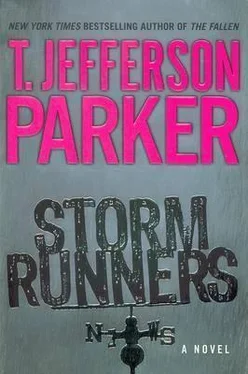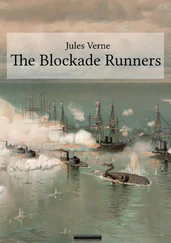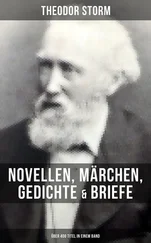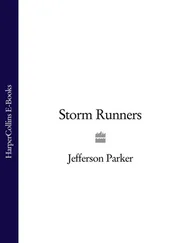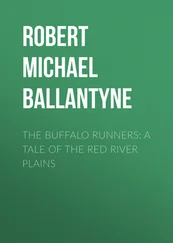“Let’s trust the PI.”
“So far, I do trust the PI,” said Marianna. “He’s better than the law in some ways.”
Cedros nodded. “Yeah, he’s got no reason to throw me in jail.”
“But notice how the risk always falls on you.”
“Things will be different when we’re up here, honey. We’ll be hundreds of miles from Choat. I’ll be out tending to the water. He’ll be back in L.A. in his dark office. No more favors. No more rainmakers.”
“Yeah,” she said quietly, lost in thought. “One more thing. A whopper.”
“No more waiting tables for you, honey.”
“Something to do with the rain lady.”
“They say the schools up here are good.”
“What more can he do to her?”
“No bangers, no dope on the streets, no ’hood, no mad dogs, no dissin’, no smog.”
“You have to be careful, John.”
“I’ve only been sleeping two hours a night I’m so alert. I’m ready. I’m so ready.”
“Are you thinking clearly?”
“I’m happy and afraid.”
“Maybe that’s as good as it gets for now.”
“I love you. Through all this shit, I love you, Marianna.”
“I love you too, John. You’re my man.”
Late that afternoon they left the women and Tony back at the motel and drove up Highway 395 in Choat’s silent, powerful Lincoln.
Choat was dressed like an Australian adventurer, in shorts and a heavily pocketed shirt, dark socks and chukka boots. His legs were preposterously muscular and white. He wore aviator shades and smoked a big cigar while Cedros drove, the cracked window sucking out the billows of smoke and the air conditioner blasting cold clean air back in.
“I love it up here,” said Choat. “Miss it.”
“I’m lucky.”
“Damned straight. Turn where it says Owens Gorge/Power Plant.”
Cedros caught a glimpse of the little village where he and his family would soon be living. It was nestled between the gorge walls, down by the river, shaded by cottonwoods ablaze in the advancing fall. The power-plant towers and transformers rose high into the air above the village, looking to him like something from Dr. Frankenstein’s lab — all curls and spikes and dire labyrinths of cable and steel. He could picture lightning arcing from one coiled spire to another, giving life to something contained within. Giving power to the city, was more like it, he thought. Power to the city all those hundreds of miles away. It’s not about the water, it’s about the power.
But Choat ordered him to turn away from the power plant and follow the dirt road along the gorge, paralleling the big pipe through which the Owens River was guided into the power-plant turbines.
“Almost a century ago we brought the water,” said Choat. “Wasn’t easy. We built two hundred and fifteen miles of road. And two hundred and thirty miles of pipeline. We built two hundred and eighteen miles of power line and three hundred and seventy-seven miles of telegraph and telephone line. We had fifty-seven work camps for our guys. There were three thousand nine hundred of them and they came from all over the world to work for us — Bulgarians, Greeks, Serbs, Montenegrins, Swiss, Mexicans. We gave them medical for a dollar a month if they made more than forty dollars a month in pay. If they made less, it was fifty cents. Down in the tunnels it hit a hundred and thirty degrees in summer. These guys didn’t just work. They set records. The Board of Engineers estimated we could build about eight feet of tunnel per day — that’s four feet a day at each end. We averaged twenty-two feet. At one point they said it would take five years to finish up the last tunnels and get the water to L.A. We came in twenty months ahead of that schedule. And we killed a lot less people than they did constructing the New York aqueduct, which was built about the same time. They killed a man a week. We killed less than one a month. One was permanently injured. Accidents of a trivial nature totaled one thousand two hundred and eighty-two.”
Choat turned and looked at Cedros as if predicting which category he’d fall into.
“It’s humbling,” said Cedros.
“You know what the DWP’s William Mulholland said at the dedication ceremony on November fifth, 1913? I quote: ‘This rude platform is an altar, and on it we are here consecrating this water supply and dedicating the aqueduct to you and your children and your children’s children for all time.’ I think that’s beautiful. It rivals the Gettysburg Address, in my opinion.”
Choat got out, used a key to open a gate, and Cedros drove the Lincoln through. Choat stood by Aqueduct One holding the gate open and Cedros saw that his head was not nearly as high as the pipe containing the river — it looked close to seven feet tall, not including the short powerful legs on which it was raised. Cedros smiled to himself: the big barrel of Choat’s gut and chest mimicked the curved wall of the pipe behind him, and the bulging calves that supported the man looked something like the staunch legs that held up the aqueduct.
No wonder he loves the damned thing so much, thought Cedros — it looks like his own father, or the child he never had.
As Choat opened the passenger door he gave Cedros the only genuine smile that Cedros had ever seen on the man. Even obscured by cigar and mustache, it was an unmistakable expression of a moment’s happiness that was gone by the time he sat and slammed the door.
Down the dirt road he drove, gravel popping under the carriage like butter in a pan and dust rising behind. The sun was a simple orange ball high in the west but already lowering toward the sharp tips of the Sierra Nevada.
They trundled down the road in silence for nearly half an hour, following the great pale green pipe.
Finally the pipe was replaced by the river itself and Choat told Cedros to pull over.
Cedros cut the engine and got out. He crunched across the desert and looked down to see the Owens River as it blasted into a wide chute, dropped a few feet in elevation into a narrower chute, then charged in a swirling riot against a grate that looked like the bars of a prison cell before being devoured by the huge intake pipe.
It was not so much loud as vibrational, a subwoofing thrum that he felt in his nerves.
“Where the river meets man,” said Choat.
“Impressive.”
“More than impressive. Eight decades of growth for the greatest city on Earth began right exactly here. Movies, television, musical recording, aerospace, the Dodgers, the Lakers, the Philharmonic, the ’84 Olympics — none of them would have happened in Los Angeles without this pipe. History was created by it. The future begins with it. View it. Not many people have.”
Cedros obediently looked down into the rush of water. The river, where it left the earth for concrete, was almost black and it burst into a white boil of protest as it left its bed to be channeled down into the first chute. Then, gathering deeper, it dropped again into the smaller channel and burst into wild, wobbling, glassy shards that slammed against the steel grate and fled down. Cedros wondered how many cubic feet per second were charging through that pipe. He felt the vibrations through the soles of his shoes.
An elevated platform straddled the second intake chute, accessible by metal stairs on either side of the water. The platform had railings to keep anyone from falling to what would be certain death in the water below.
“Let’s go up,” said Choat. “Get a good look at her. You first.”
Cedros looked at his boss. “Okay.”
He led the way up the eight steps. Through the hum of water he couldn’t hear his shoes hitting the stairs, or tell if the gate leading to the platform creaked when he swung it forward and stepped onto the iron-mesh deck. The deck was rusted smooth in the way that only a desert can rust metal.
Читать дальше
Конец ознакомительного отрывка
Купить книгу
